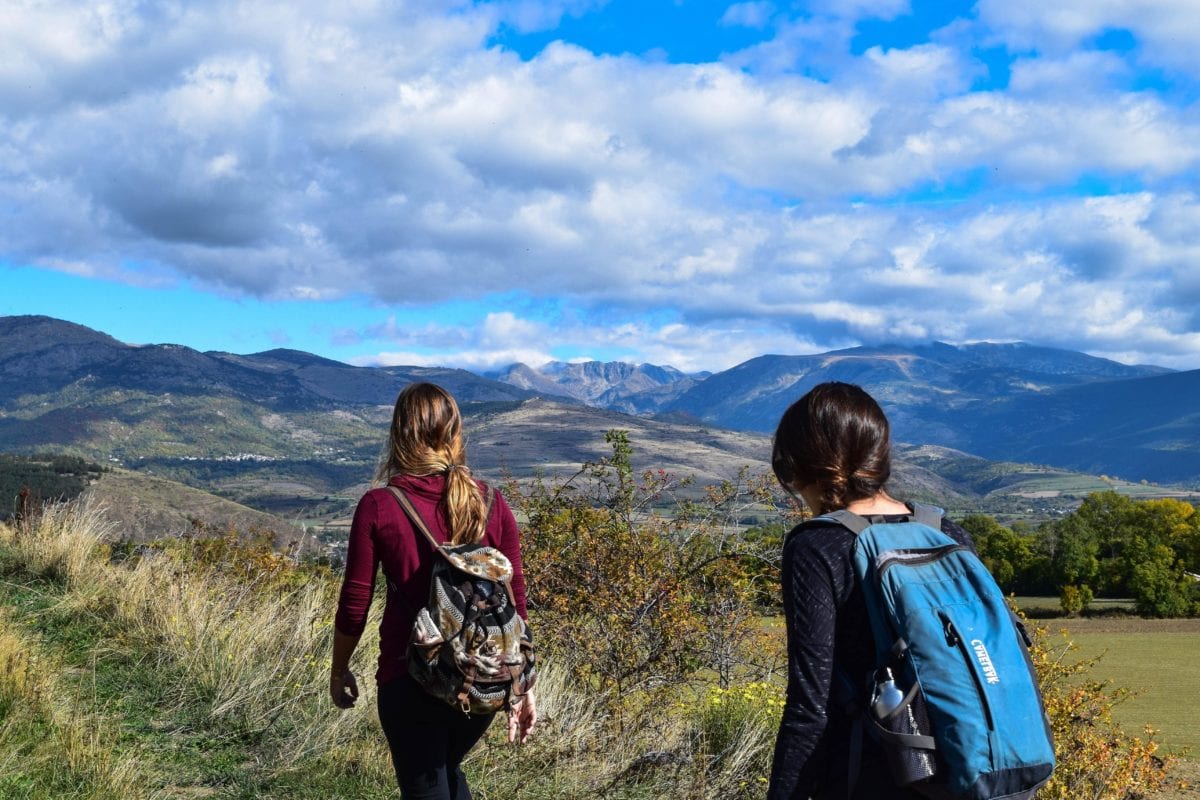Skift Take
The global focus on sustainability will be the catalyst for the asset light and human-focused tour operator sector going mainstream.

For our Viewpoint series, Skift invites thought leaders, some from the less obvious corners of travel, to join in the conversation. We know that these independent voices are important to the dialogue within the industry. Our guest columnists will identify and shape what global trends and through lines will define the future of travel.
When tourism decided to declare a climate emergency and take that declaration to Glasgow, it wasn’t leaders from airlines, hotels, online travel agencies or the cruise industry leading the charge.
It was tour operator executives like Alex Narracott, the CEO of Much Better Adventures. His push to have global travel brands commit publicly to reduce emissions by 50 percent by 2030 and reach net zero by 2050 is just one prominent example of tour operators playing an outsized role in sustainable travel.
Tour operators can reach local communities directly through tour guides who, in best case scenarios, are actually from the community. Since that access provides such companies immediate feedback about a host community’s perception of tourism, I set out to find out why the sector has taken a leading role in one of the most defining issues of our time.
“It’s like going to the same church. We’re all already believers,” said Michael Edwards, the managing director of tour operator Explore Worldwide, when asked why the sector has played such a big role in sustainability.
While G Adventures founder Bruce Poon Tip believes tourism can spark wealth distribution and poverty alleviation, Fiona Ngesa, the director of market development for the Kenya Tourism Board, has also seen tour operators place an increasing emphasis on sustainability — largely because they’ve been pushed to do so.
“I see it as a simple matter of supply and demand,” said Ngesa, who wrote a book titled Sustainability Agenda: The Challenge & Opportunity for Organizations that examined the relationship between tour operators and sustainability.
“Travelers, especially millennial travelers, are interested in sustainability and in meeting people and understanding how things really are here. It can’t just be about safari any more.”
It’s not just the old guard of the tour operator sector assuming a leading role. Byway is a UK-based startup making huge early waves with its intention to “be a thought leading brand for slow travel” via its flight-free holidays. Founder Cat Jones is an absolute force “out to change the (travel) sector by making it climate friendly.” She describes sustainability as “the thing” that motivated her to start Byway.
“I’ve never had a car. I’ve always traveled this way of getting around on trains and boats and other things,” Jones said. “(This seemed a good way to) do something that pushes the envelope.”
But companies in the other sectors of the travel industry also need to do heavy lifting regarding sustainability, believes Darrell Wade, the founder of Intrepid Travel.
“Tour operators are taking a leading role but ultimately we are such a small percentage (of travel) and it is not filtering into the broader industry” said Wade, who also serves as vice chair of the World Travel & Tourism Council.
“Roughly one-third of the industry is concerned and want to do something, one-third are aware but not really thinking about it much, and (the other third) just wants it to go away and is sticking their head in the sand.”
Sally Davey, the CEO of Travalyst, a global coalition of travel companies Prince Harry founded that encourages greener practices in the industry, is working with those corporations she sees committed to sustainability, though. Travalyst — which includes companies such as Expedia Group, Booking.com, Trip.com and TripAdvisor — has launched a standardized method for collecting and displaying flight emissions data, an effort to steer consumers toward making more sustainable travel choices. Both Google and Skyscanner announced this April they would feature the Travalyst-developed framework on their platforms.
However, Davey acknowledges a huge barrier in assembling companies to address issues of sustainability.
“This involves traditional competitors talking and working together and that, as you can imagine, is a really hard thing,” she said.
“(It took a force like Prince Harry) to pick up the phone and give everyone a call to …. start talking about the issues so the industry can start the journey of building a collective voice.”
So what’s the solution to ensure travel will be greener? Wade brought up the aviation industry’s push to decarbonize as well as business travel’s efforts to enact changes at the hotel level.
“Businesses of all types will be looking to ensure that where they spend their money aligns with the expectations of their values and that of their customers,” Wade said. “That is driving rapid change as hotels can’t afford to lose that business.”
But he doesn’t see carbon offsets, a significant trend in the travel industry over the last decade, as a panacea. Poon Tip agrees.
“The idea you can make a mess in one place and try and fix it somewhere else is just crazy,” Poon Tip said.
Tony Carne is an Australia-based serial entrepreneur/Intrapreneur and a lifelong veteran in the tour operator space. He currently an entrepreneur-in-residence at vc firm Antler.
The Daily Newsletter
Our daily coverage of the global travel industry. Written by editors and analysts from across Skift’s brands.
Have a confidential tip for Skift? Get in touch
Tags: climate change, g adventures, intrepid travel, tour operators, travalyst, viewpoint
Photo credit: Two travelers hiking together Pixnio
